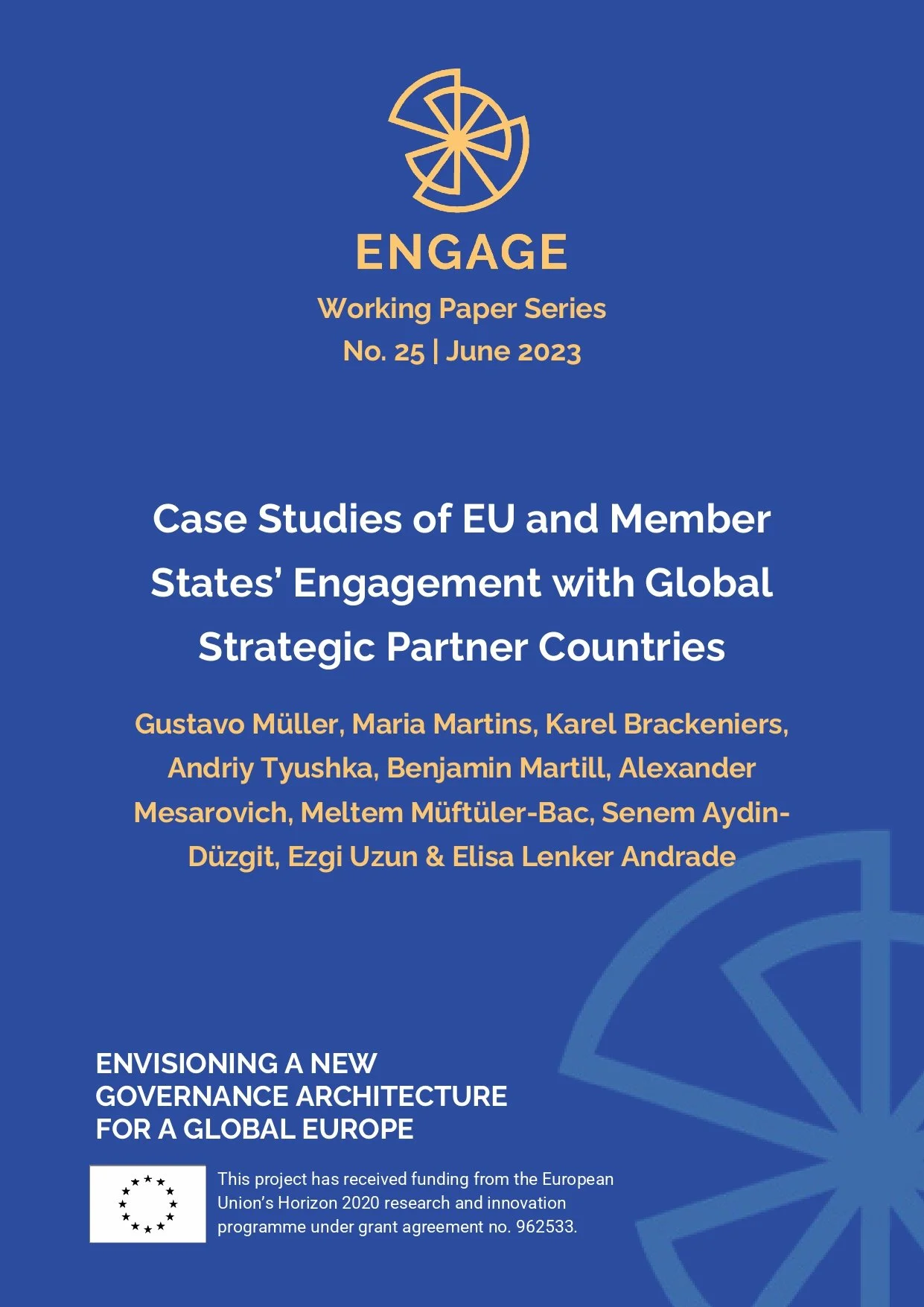Case Studies of EU and Member States’ Engagement with Global Strategic Partner Countries
Gustavo Müller, Maria Martins, Karel Brackeniers, Andriy Tyushka, Benjamin Martill, Alexander Mesarovich, Meltem Müftüler-Bac, Senem Aydin-Düzgit, Ezgi Uzun & Elisa Lenker Andrade
This working paper delivers a comprehensive examination of the European Union's (EU’s) strategic partnerships with Brazil, the United Kingdom, the United States, Russia,Turkey and China.
For each case study, it explores the historical origins and current state of these partnerships, the different forms they can take, and the objectives and challenges they seek to address.
By zooming in on critical policy areas of each relationship and the role of EU Member States therein, the paper sheds light on the horizontal and vertical coherence of the EU’s external action.
The case studies show the importance of recognising each strategic partnership's unique regional and global context, which is indissociable from the EU’s bilateral relationship with the third country.
The successes, failures or stagnations of these relationships cannot be attributed solely to the EU’s policies or lack thereof, as external factors and the partners' own actions and policies can significantly influence the outcomes.
It is argued that strategic partnerships have the potential to establish lasting frameworks for joint action, create momentum for further cooperation, and sustain important relationships amidst potential crises and unforeseen events.
However, the partnerships must demonstrate adaptability to geopolitical and geoeconomic changes while maintaining their alignment with the EU’s external action objectives.


